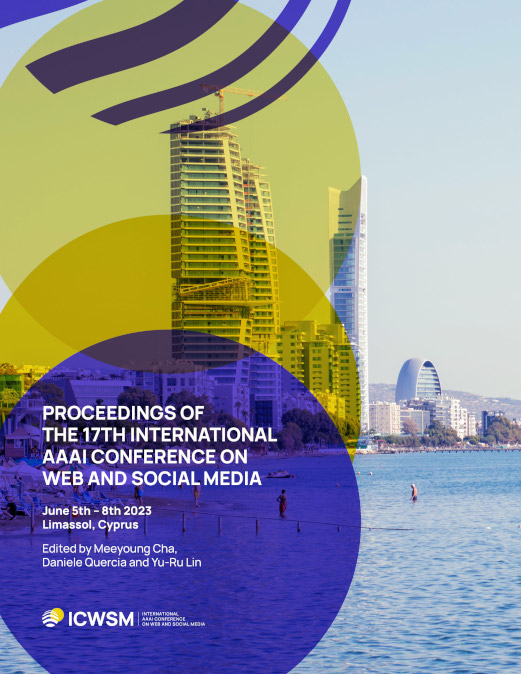Different Affordances on Facebook and SMS Text Messaging Do Not Impede Generalization of Language-Based Predictive Models
DOI:
https://doi.org/10.1609/icwsm.v17i1.22226Keywords:
Subjectivity in textual data; sentiment analysis; polarity/opinion identification and extraction, linguistic analyses of social media behavior, Social media usage on mobile devices; location, human mobility, and behavior, Text categorization; topic recognition; demographic/gender/age identification, Qualitative and quantitative studies of social mediaAbstract
Adaptive mobile device-based health interventions often use machine learning models trained on non-mobile device data, such as social media text, due to the difficulty and high expense of collecting large text message (SMS) data. Therefore, understanding the differences and generalization of models between these platforms is crucial for proper deployment. We examined the psycho-linguistic differences between Facebook and text messages, and their impact on out-of-domain model performance, using a sample of 120 users who shared both. We found that users use Facebook for sharing experiences (e.g., leisure) and SMS for task-oriented and conversational purposes (e.g., plan confirmations), reflecting the differences in the affordances. To examine the downstream effects of these differences, we used pre-trained Facebook-based language models to estimate age, gender, depression, life satisfaction, and stress on both Facebook and SMS. We found no significant differences in correlations between the estimates and self-reports across 6 of 8 models. These results suggest using pre-trained Facebook language models to achieve better accuracy with just-in-time interventions.Downloads
Published
2023-06-02
How to Cite
Liu, T., Giorgi, S., Tao, X., Chandra Guntuku, S., Bellew, D., Curtis, B., & Ungar, L. (2023). Different Affordances on Facebook and SMS Text Messaging Do Not Impede Generalization of Language-Based Predictive Models. Proceedings of the International AAAI Conference on Web and Social Media, 17(1), 1153-1157. https://doi.org/10.1609/icwsm.v17i1.22226
Issue
Section
Poster Papers

